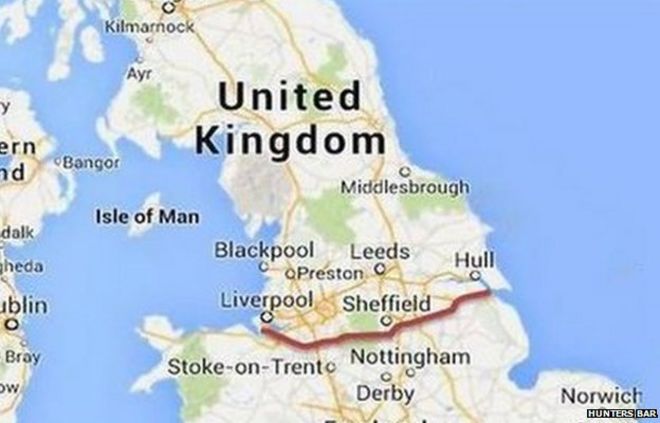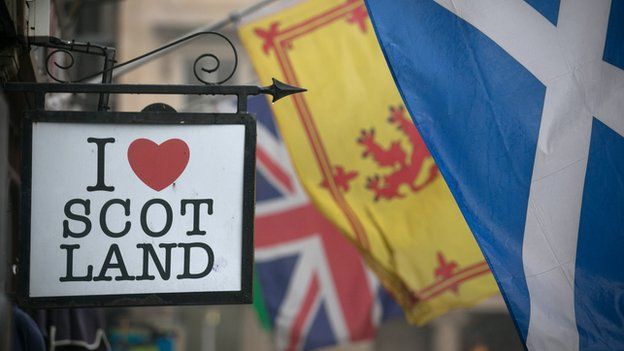
Thousands of people in the North of England have been using the hashtag "take us with you Scotland" to express their upset about the result of last week's general election, and the Scottish nationalists are welcoming this English minority with open arms.
Since last Thursday's general election in Britain the phrase "take us with you Scotland" has been used more than 24,000 times. Cities in the North of England have traditionally been a stronghold of the Labour party who retained many of them in the recent vote, but won 232 seats overall, 26 fewer seats than they won in 2010. Voters in the region also returned Conservative MPs - including Chancellor George Osborne who is today setting out a plan for greater devolution to northern cities. For obvious reasons, the left-leaning Scottish National Party didn't stand in the region - but won nearly all the seats in Scotland.
On Sunday afternoon left-leaning voters in Yorkshire and Lancashire started to use the hashtag to express their upset at this situation. "#TakeUsWithYouScotland genuinely beginning to wonder if the North of England becoming a part of Scotland would be better for us, I really am" tweeted Aaron Miller from Yorkshire. Some cracked more jokes under the tag after the North West Motorway Police account, which gives traffic updates, announced that they had "picked up a pedestrian on the M62 who was trying to walk to Scotland".

After the initial spike of jokes on Sunday evening, the hashtag really took off when users start to mobilise around a year old petition on change.org, which is titled "allow the north of England to secede from the UK & join Scotland". The petition's creator, a Sheffield resident who calls himself "Stu Dent", set it up to coincide with last year's Scottish independence referendum. A map created by Dent imagining the boundary of a "Scotland plus the north" was also widely shared.
Dent runs the Twitter account Hunters Bar, named after an area of southwest Sheffield which is very popular with students and which also happens to sit on the edge of the Sheffield Hallam constituency - represented by the former leader of the Liberal Democrats, Nick Clegg. Despite having thousands of followers on Twitter, when Dent first posted his map last year, the image was shared less than 100 times - but in the past week it's been retweeted by thousands.
Dent told BBC Trending that he was surprised at how popular his petition had become. "In hindsight, perhaps I shouldn't have been," he said. "There is a huge frustration in parts of the UK about the things that have happened since 2010."
"I think people need a place to go where they can say 'not in my name! This is not the England I want'," he added.

So why has the trend grown so big now? The election results are clearly one factor, but there may be another: the power of the Scottish Nationalists on Twitter and their ability to influence the discussion on the platform. What started as a post-election joke in the North of England was quickly embraced by the so-called "Cyber Nats" and they were able to push the image and petition up the Twitter trending list.

More than 12,000 people from Scotland and Northern England have signed the petition and the map has now been retweeted more than 3,000 times. The SNP's social media strategist Ross Colquhoun expressed the party's mood about the hashtag best, in a post which was shared more than 500 times. "2014: #LetsStayTogether 2015: #TakeUsWithYouScotland What a difference a year makes" he tweeted.

